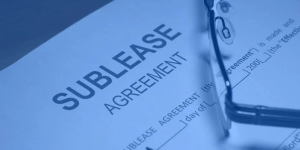Being a landlord comes with its challenges, including dealing with tenant damage. Not all tenants will treat your property with care, and managing difficult situations can be stressful. Poorly handled tenant complaints or disputes may escalate, leading to property damage as an act of retaliation. While implementing strong tenant screening protocols and proactively addressing tenant concerns can mitigate potential losses, understanding your legal rights and options is crucial if damage occurs.
Understanding Tenant Responsibilities
Tenants are expected to maintain the rental property and are responsible for repairing or covering the costs of any damage beyond normal wear and tear. This includes damage caused by their guests or anyone else residing in the unit. Documenting instances of tenant-caused damage promptly is essential for seeking remedies. Examples of damages include:
- Broken windows or fixtures.
- Large holes in walls.
- Burns or stains on carpets.
- Damaged appliances due to misuse.
What is Normal Wear and Tear on a Rental Property in Ontario?
Understanding what is normal wear and tear on a rental property in Ontario is essential for both landlords and tenants. Normal wear and tear refers to the natural and expected deterioration of a property resulting from everyday use. This type of wear occurs over time and is not caused by tenant neglect or abuse. Ontario’s rental laws outline that such maintenance is generally the landlord’s responsibility.
Common examples of normal wear and tear include faded paint, minor scuffs on walls, and carpets showing signs of regular foot traffic. These signs of use are typical in any occupied property and do not indicate negligence. Repairs that fall under normal wear and tear may involve:
- Repainting walls to address discoloration or fading.
- Replacing old or worn carpets that have deteriorated naturally.
- Fixing small scratches on floors caused by the regular movement of furniture.
- Tightening loose doorknobs or cabinet handles.
- Addressing minor discoloration or wear on countertops.
It is crucial to distinguish between normal wear and tear and actual property damage. Damage, such as large holes in walls, broken windows, or burns in carpets, typically results from tenant negligence or intentional harm and may require the tenant to pay for repairs. By understanding what is normal wear and tear on a rental property in Ontario, landlords and tenants can better manage their maintenance responsibilities and avoid disputes over repair costs.
Are Damage Deposits Legal in Ontario?
In Ontario, landlords are prohibited from charging tenants a separate damage deposit. Under the Residential Tenancies Act, 2006, landlords can only request a rent deposit equivalent to one month’s rent, which is intended to be applied to the tenant’s final rental period. This deposit cannot be used to cover damages to the property during the tenancy. Any demand for an additional damage deposit is illegal and tenants are not obligated to pay it.
While landlords cannot require a separate damage deposit, they are permitted to use the tenant’s last month’s rent deposit to cover unpaid rent or repair costs for damages that exceed normal wear and tear. Examples of such damages may include significant wall holes, broken fixtures, or property alterations made without permission. However, landlords must provide evidence of these damages and may need to justify the deductions.
In cases of severe or intentional property damage, landlords have the right to pursue further action. This may include filing a claim with the Landlord and Tenant Board (LTB) for compensation or seeking an eviction order. The LTB handles disputes between landlords and tenants and provides guidance on the appropriate legal steps to recover costs resulting from tenant negligence or intentional harm to the property.
How Much Can a Landlord Charge for Damages in Ontario?
This is a critical question for landlords. Unlike in some other jurisdictions, a landlord in Ontario cannot simply decide on an arbitrary amount or withhold a “damage deposit” to cover repairs. The precise amount a landlord can charge for tenant-caused damages is determined by the Landlord and Tenant Board (LTB) through a formal application process. The LTB will consider the actual, documented cost of repairs or replacement, but crucially, it will also factor in the depreciation of the damaged item. This means a landlord will typically not be awarded the full cost of a brand-new replacement for an older item. For a comprehensive breakdown of how the LTB determines this amount, including the role of depreciation and the required evidence.
Negotiating Repairs
If tenant-caused damage occurs, the first step is to communicate with the tenant. Request in writing that they cover the repair costs, including photographs and itemized invoices to support your claim. This documentation creates a paper trail, which is helpful if legal action becomes necessary. Landlords cannot withhold deposits for repairs related to normal wear and tear.
Legal Recourses for Tenant Damage
Filing a Damage Claim with the Landlord and Tenant Board (LTB)
Landlords can file an application for damages with the LTB. Once the application is submitted, a hearing will be scheduled, providing an opportunity for both parties to present their cases. Landlords should bring evidence such as photographs, repair invoices, and prior communications with the tenant. The LTB can order the tenant to pay damages if the claim is justified.
Pursuing Small Claims Court
If the amount of damage exceeds $35,000, landlords may need to escalate the case to the Superior Court of Justice. For amounts below this threshold, filing in Small Claims Court is an option. In both instances, landlords must present compelling evidence to secure a favorable judgment.
Evicting a Tenant Due to Property Damage
In cases of severe or intentional damage, eviction may be necessary. Begin by notifying the tenant in writing of the issue and requesting they address the damage. If the tenant fails to act, serve them with an official notice to terminate the tenancy. Use the correct forms approved by the LTB and ensure all legal procedures are followed. Keep in mind that tenants have the right to appeal an eviction notice.
Landlord Responsibilities and Repair Obligations
Landlords are obligated to maintain their rental properties in a habitable condition, addressing issues that impact health, safety, and livability. While cosmetic damage may not warrant immediate action, repairs affecting structural integrity, plumbing, or electrical systems must be completed promptly. Examples of essential repairs include:
- Fixing heating systems.
- Addressing electrical or plumbing issues.
- Repairing structural damage to walls, ceilings, or floors.
- Ensuring windows, doors, and locks are functional.
Conclusion
Dealing with tenant damage can be frustrating and costly, but understanding your rights and responsibilities as a landlord can help minimize the financial and emotional impact. By documenting issues, communicating effectively with tenants, and utilizing available legal avenues, you can protect your investment and maintain a smoother landlord-tenant relationship. Consulting with a legal professional can provide additional guidance tailored to your situation.
Sources
- CTVNews.ca Staff. (2018, June 9). Landlord rights: What to do if a tenant trashes the place. CTVNews. Retrieved April 6, 2022, from https://www.ctvnews.ca/business/landlord-rights-what-to-do-if-a-tenant-trashes-the-place-1.3966744
- Tribunals Ontario. (2018, July). Brochure: Maintenance and Repairs. Landlord and Tenant Board. Retrieved from https://tribunalsontario.ca/documents/ltb/Brochures/Maintenance%20and%20Repairs%20(EN).pdf
- Simon Shields, LLB. (2020, September 1). LEGAL GUIDE: RESIDENTIAL LANDLORD AND TENANT LAW (ONTARIO) – Ch.16 Civil Remedies. Retrieved April 6, 2022, from http://www.isthatlegal.ca/index.php?name=civil_remedies.tenant_law_ontario





